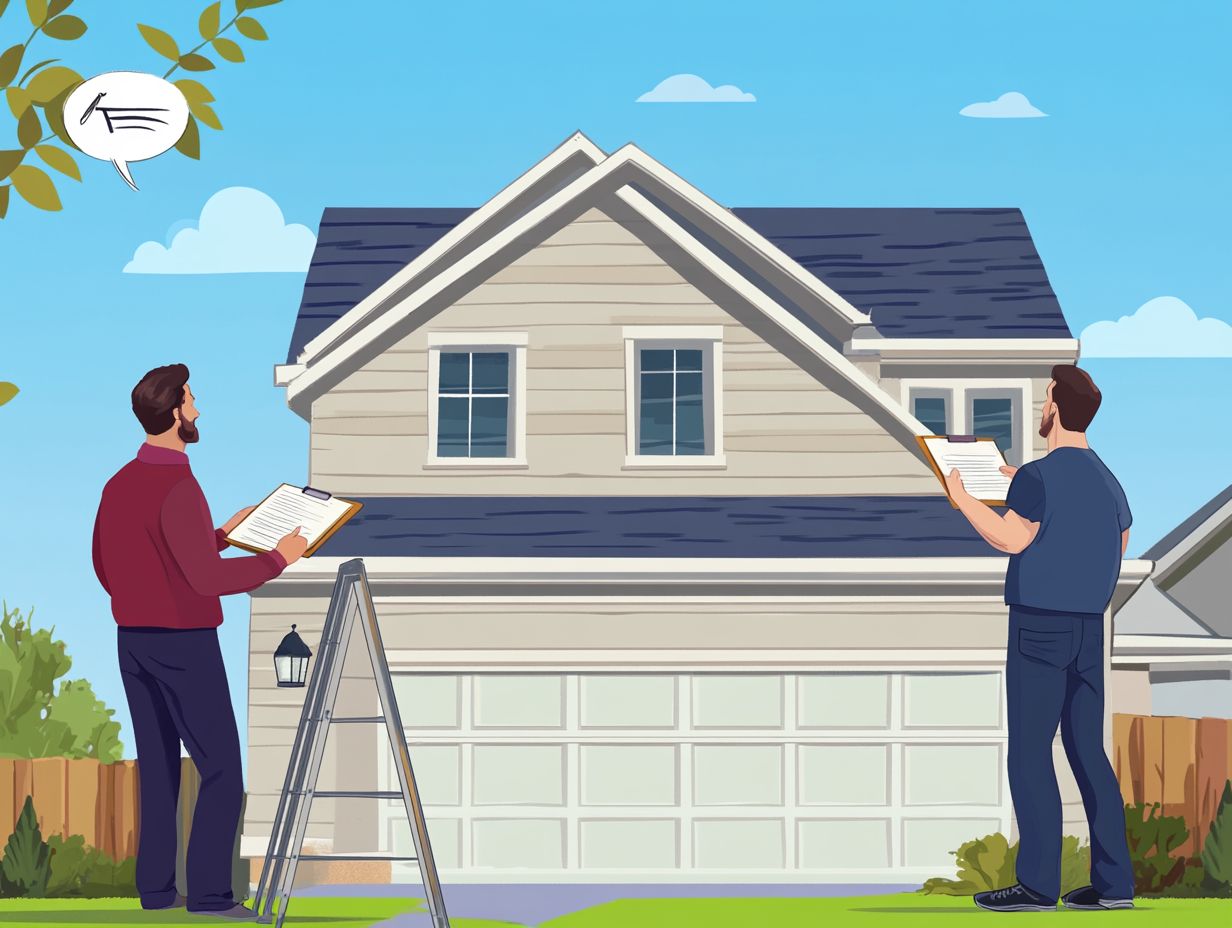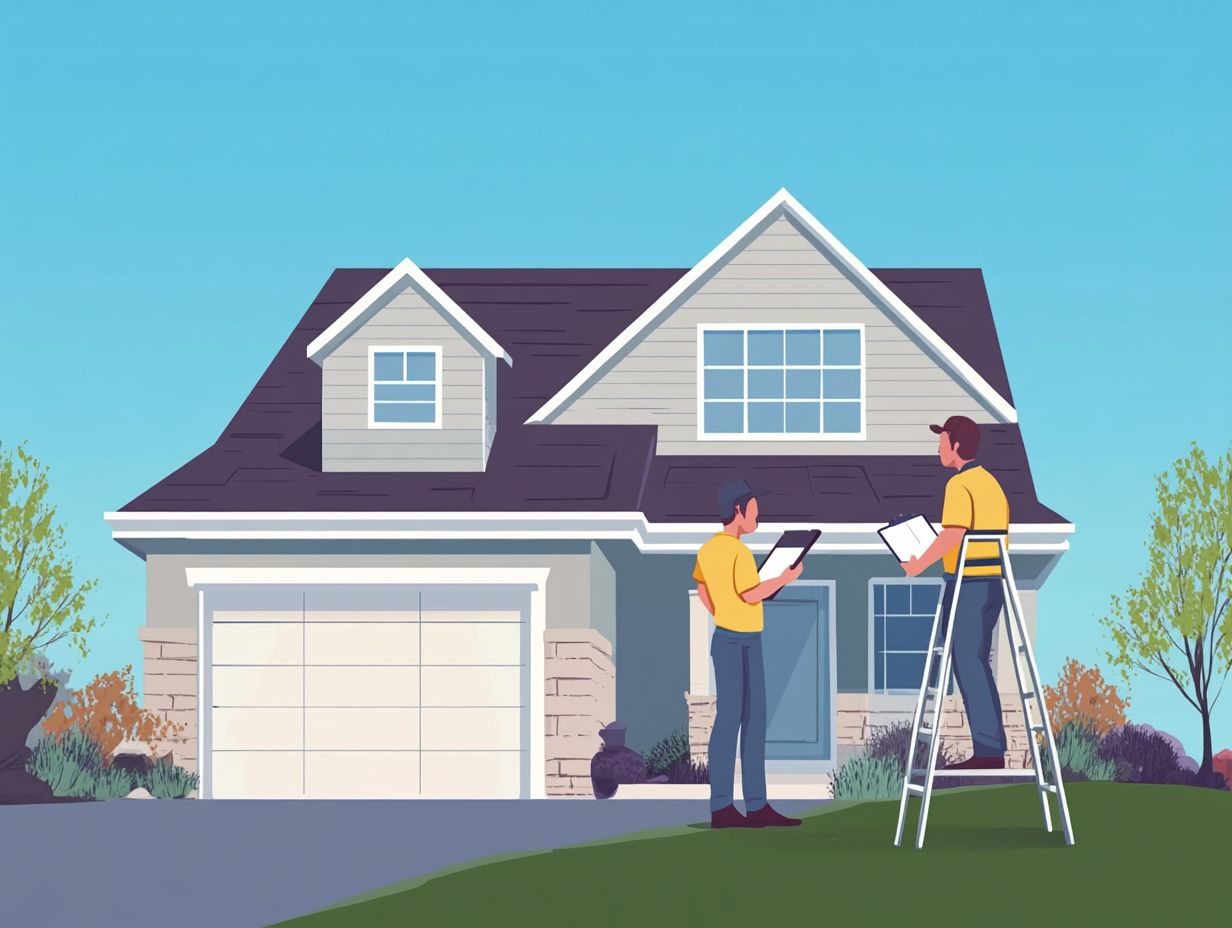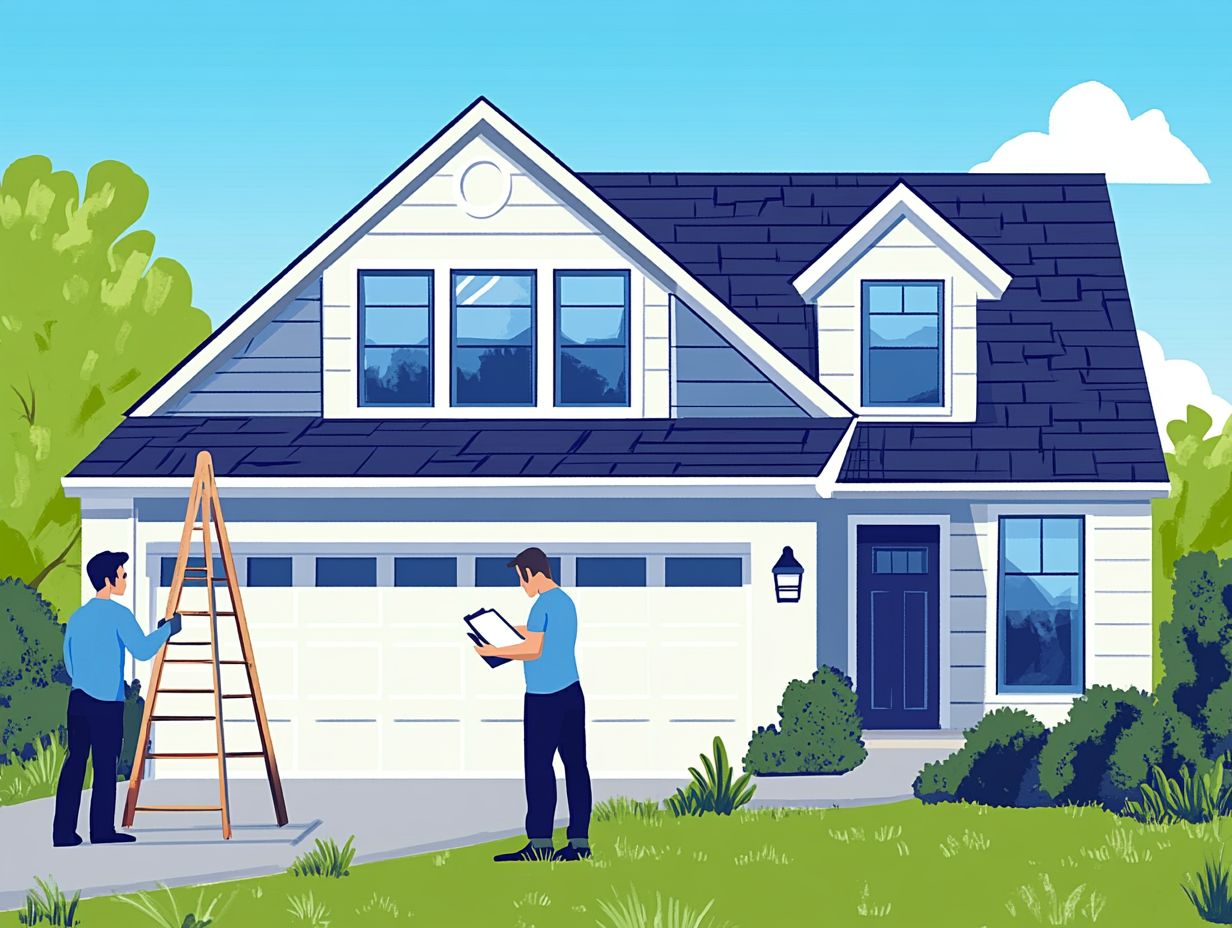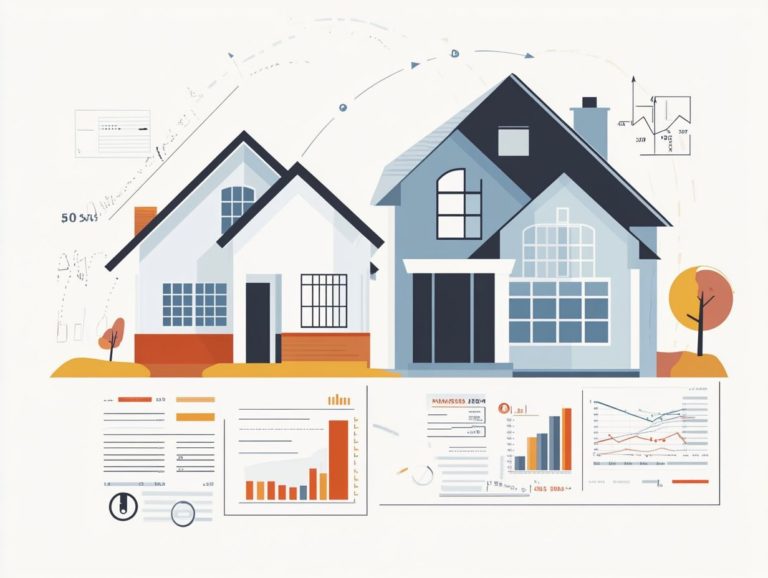What to Expect During a Home Inspection?
A home inspection is an essential part of the buying or selling journey. It offers invaluable insights into the condition of a property.
This article delves into what a home inspection involves, emphasizing its importance and how you can prepare for it. It walks you through what to expect during the inspection, points out common issues that may arise, and provides strategies for addressing any problems that are identified.
Whether you re a first-time buyer or an experienced homeowner, understanding this process will empower you to make informed choices.
Contents
Key Takeaways:
- A home inspection is crucial for understanding a property’s condition.
- Prepare by ensuring access to all areas and fixing minor issues beforehand.
- Expect a detailed evaluation of common problems such as structural and plumbing issues.
Overview of Home Inspections
Home inspections play an essential role in your home buying journey. They offer you valuable insights and a thorough grasp of the property’s condition.
A professional inspection is typically conducted by certified inspectors affiliated with reputable organizations like the American Society of Home Inspectors (ASHI). This inspection delves into various critical areas such as structural components, plumbing, electrical systems, and heating, ventilation, and air conditioning systems (HVAC), which help control the temperature and air quality in your home.
This detailed evaluation gives you the power to make informed decisions, negotiate more effectively, and clarify the seller’s responsibilities regarding repairs and maintenance.
Whether you re embarking on your first home purchase or expanding your investment portfolio, appreciating the significance of home inspections can greatly enhance your buying experience.
What is a Home Inspection?
A home inspection is a meticulous examination of a property’s condition, typically performed by a qualified inspector. It results in a comprehensive report detailing any identified issues.
This thorough process covers various essential aspects of the home, including structural integrity, roof condition, and foundation stability. It ensures that both strengths and weaknesses are accurately evaluated.
You can expect all plumbing systems to be inspected for leaks or corrosion, while electrical systems are assessed for safety and efficiency. The heating, ventilation, and air conditioning (HVAC) systems are also checked to confirm optimal functionality.
Safety concerns include the presence of carbon monoxide detectors and adherence to building codes, which are carefully checked. This provides you with invaluable insights into the property s overall safety and livability.
Why Home Inspections are Important
Home inspections are crucial in the real estate process, revealing serious problems that could derail a deal. They provide you with an invaluable opportunity to assess the property’s value and condition before making a purchase.
A comprehensive inspection checklist equips you to pinpoint any potential issues that could impact your investment. With these findings, you gain leverage during negotiations, allowing you to request necessary repairs or adjustments to the price based on the inspection results.
Benefits of a Thorough Inspection
A thorough home inspection is your secret weapon to safeguard your investment! It offers you a wealth of benefits, including a comprehensive written report that highlights safety issues, identifies potential repairs, and outlines expected inspection costs.
Engaging in this essential process brings you peace of mind and deepens your understanding of the property s condition, which is crucial for making informed decisions.
For example, consider a couple who uncovered significant roof damage during their inspection. This revelation could have led to thousands in repairs, but it gave them the power to negotiate with the seller for a price reduction or prompt repairs. This scenario illustrates how proactive measures can lead to substantial savings.
Moreover, buyers like you who choose to invest in a thorough inspection often have the chance to secure a home warranty that covers unexpected expenses in the first year of ownership, further enhancing your financial protection.
Preparing for a Home Inspection

Preparing for a home inspection demands careful planning and a keen eye for detail. Both buyers and sellers have essential responsibilities that can significantly influence the inspection’s results.
As a buyer, it s beneficial to create a comprehensive checklist of key areas to focus on, ensuring nothing slips through the cracks. For sellers, prioritizing accessibility and maintaining the property in excellent condition promotes a seamless inspection process.
Understanding the steps to take before the inspector arrives can help mitigate potential issues and create an environment conducive to a favorable inspection experience.
What to Do Before the Inspector Arrives
Before the home inspector arrives, complete a pre-inspection checklist tailored for both sellers and buyers. This will help ensure a smooth inspection process and achieve the best possible outcome.
Sellers should prioritize clear access to important systems like heating, ventilation, and air conditioning (HVAC), plumbing, and electrical setups. This thoughtful approach allows the inspector to evaluate each component efficiently.
Don’t delay in making those minor repairs this small effort could save you big headaches later!
For buyers, it s wise to prepare a list of questions regarding the home’s maintenance history, potential repairs, and warranties for appliances and systems. Being well-prepared on both sides can lead to a more transparent and confident inspection process, setting the stage for a successful transaction.
What to Expect During the Inspection
Get ready for a thorough home inspection! During this process, a professional inspector will conduct a detailed evaluation of the property, so it’s important to know what to expect in a home inspection report.
The inspection typically lasts several hours and culminates in a comprehensive report detailing the findings. This report offers invaluable insights, giving you the ability to make informed decisions as a potential buyer.
Step-by-Step Walkthrough of the Process
A step-by-step walkthrough of the home inspection process reveals the in-depth evaluation involved, guiding you from the exterior assessment to a thorough examination of plumbing issues, electrical systems, and what to look for in a home inspection report regarding any safety concerns within the property.
Inspectors start by checking the roof, siding, and foundation for signs of wear. This initial assessment can reveal serious problems down the line.
Next, they focus on the plumbing systems, checking for leaks, corrosion, and water pressure to ensure they comply with safety standards.
The electrical systems undergo rigorous checks as well, including a close look at the panel box, wiring, and safety features. The HVAC systems are evaluated for efficiency and proper operation, ensuring your comfort and safety throughout all seasons.
Each phase of the inspection is crucial, giving you a comprehensive understanding of the home’s true condition and leading to informed decisions as you navigate your potential purchase.
Common Issues Found During Inspections
Home inspections frequently unveil a variety of common issues that could present significant challenges for buyers.
These concerns often involve safety risks such as radon exposure, termite infestations, mold growth, and other structural problems that may require immediate attention.
Top Problems to Look Out For

When you conduct a home inspection, it s crucial to keep an eye out for major issues like plumbing problems, electrical system failures, and structural concerns. Each one can significantly impact your safety and future expenses.
Pay special attention to signs of water damage, such as stains on ceilings or walls. This vigilance can save you from costly repairs that stem from neglected leaks. For instance, a nearby home suffered severe mold growth due to a hidden plumbing issue, leading to exorbitant repair costs.
Outdated electrical systems also pose a significant risk. An aging panel may struggle to meet modern electrical demands, leading to overloads. One family faced frequent outages, ultimately leading to substantial repair costs after their home suffered an electrical fire.
These examples highlight why careful inspections are essential to ensure that structural integrity and safety are not compromised, ultimately protecting your investment for the long haul.
How to Address Issues Found During Inspection
Addressing the issues uncovered during a home inspection is an essential step in your buying journey. You must navigate negotiations effectively based on the insights provided in the inspection report, ensuring that sellers are held accountable for their responsibilities.
Options for Addressing Problems
- Negotiate repairs.
- Adjust the price.
- Leverage the written report to secure a favorable deal.
As a well-prepared buyer, you can approach these negotiations with confidence. Clearly outline the specific repairs that require attention and present estimates from trusted contractors to support your requests. For example, if the inspection reveals outdated wiring, you might ask the seller to either complete the electrical updates before closing or offer financial concessions to cover those costs.
By framing your requests in a collaborative tone rather than a confrontational one, you re more likely to foster productive discussions. A clear, documented approach can effectively persuade the seller to come to an agreement, creating a win-win situation for everyone involved.
Frequently Asked Questions
What to Expect During a Home Inspection?
A home inspection checks the home s condition before buying or selling. It is carried out by a professional home inspector to identify any potential issues or defects that may affect the value or safety of the home.
What is included in a home inspection?

A home inspection typically includes a visual examination of the home’s major systems and components, such as the foundation, roof, plumbing, electrical, heating and cooling systems, insulation, and more. To better prepare for this process, it’s helpful to know what to expect during a home tour with your agent. The inspector will also check for any signs of water damage, mold, pests, and other potential hazards.
How long does a home inspection take?
The duration of a home inspection can vary depending on the size and age of the home, as well as the complexity of its systems. On average, a home inspection can last anywhere from 2 to 4 hours.
Do I need to be present during the home inspection?
It is highly recommended for buyers to be present during the home inspection. This allows them to ask questions, gain a better understanding of the home’s condition, and learn about any potential issues that may have been identified. However, sellers are not required to be present.
What if the home inspection reveals issues?
If the home inspection reveals any issues, it is important to discuss them with your real estate agent. Depending on the severity of the issues, you may negotiate with the seller to have them repaired or ask for a price reduction. In some cases, you may also choose to walk away from the deal.
Can I perform my own home inspection?
While it is possible to perform a basic visual inspection of a home yourself, it is not recommended. Professional home inspectors have the training, experience, and tools needed to thoroughly assess a home’s condition. Hiring a professional ensures a more accurate and comprehensive report of the home’s condition.
Be prepared and informed before your inspection!






